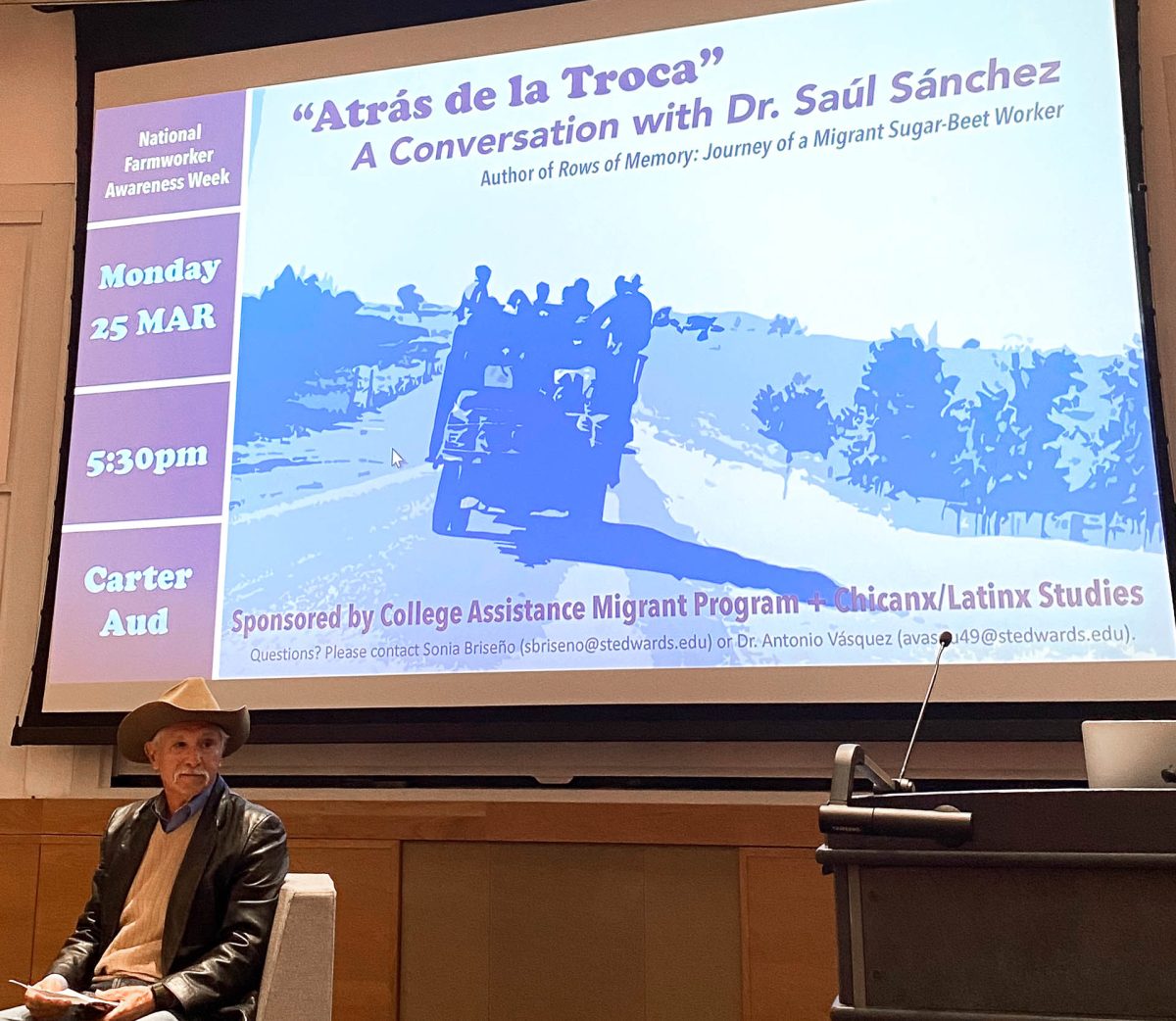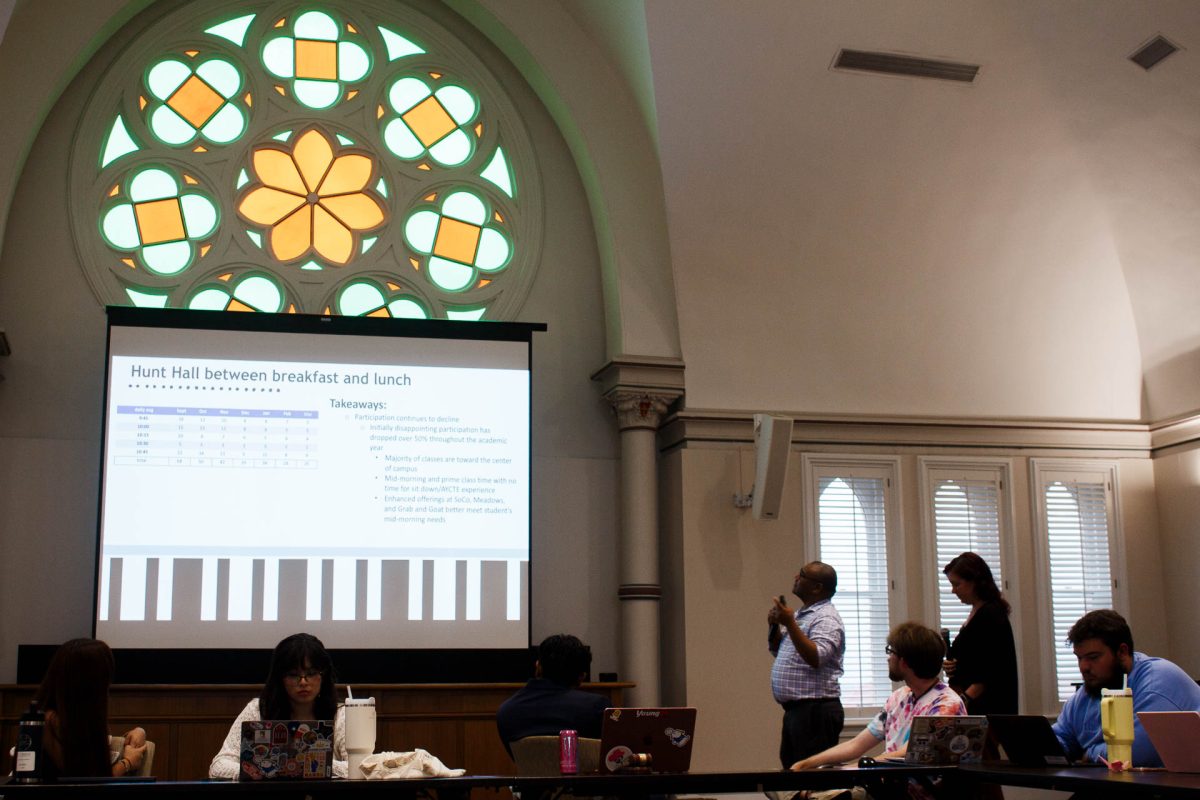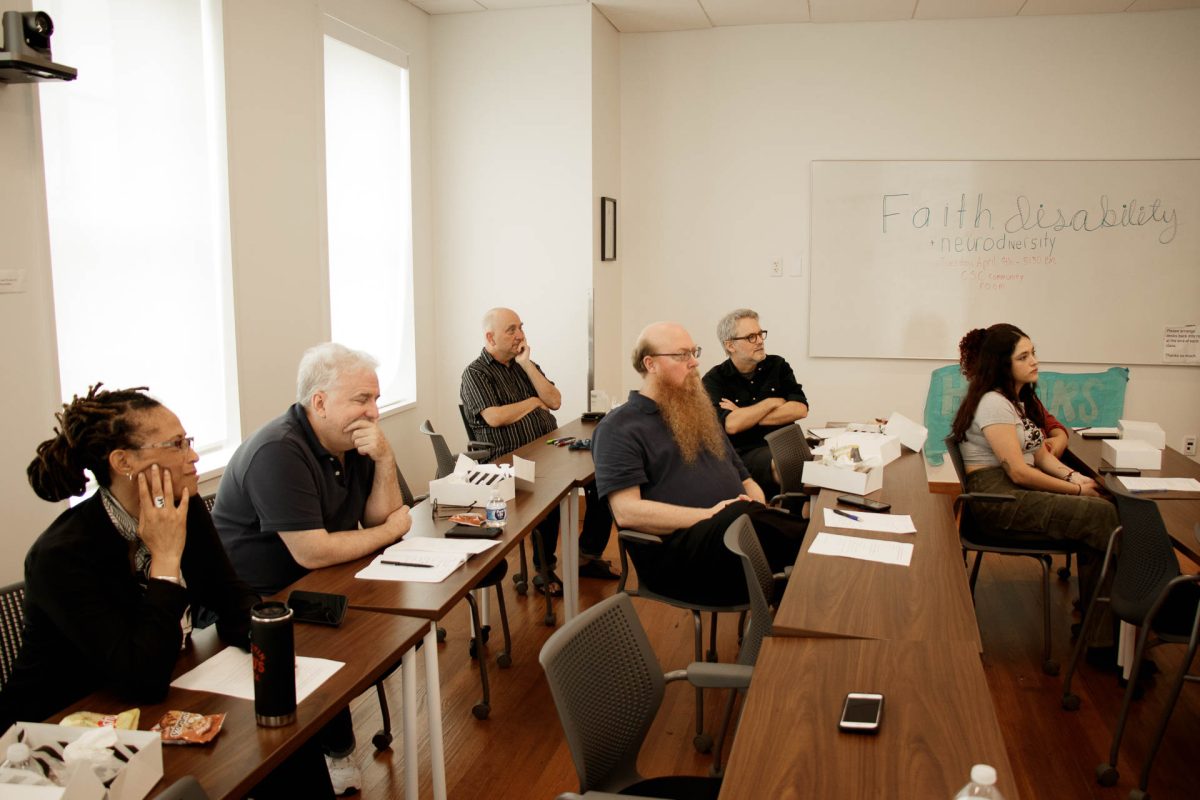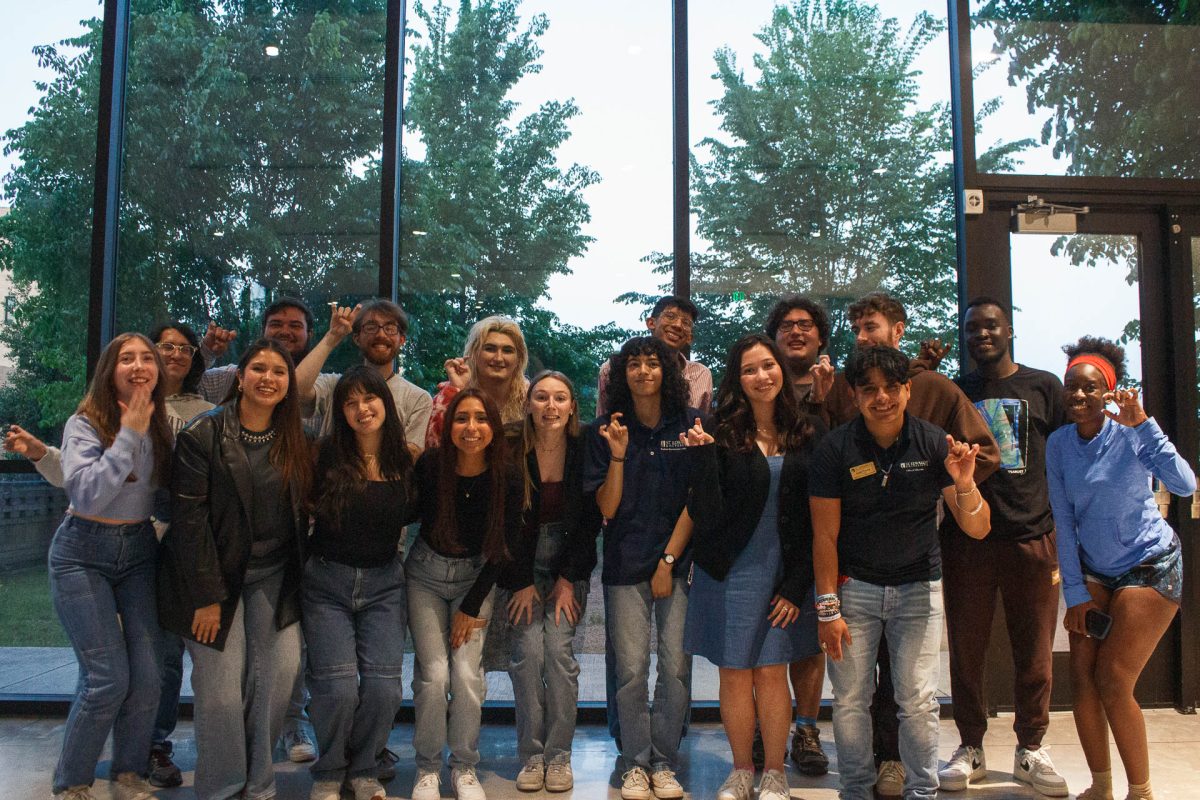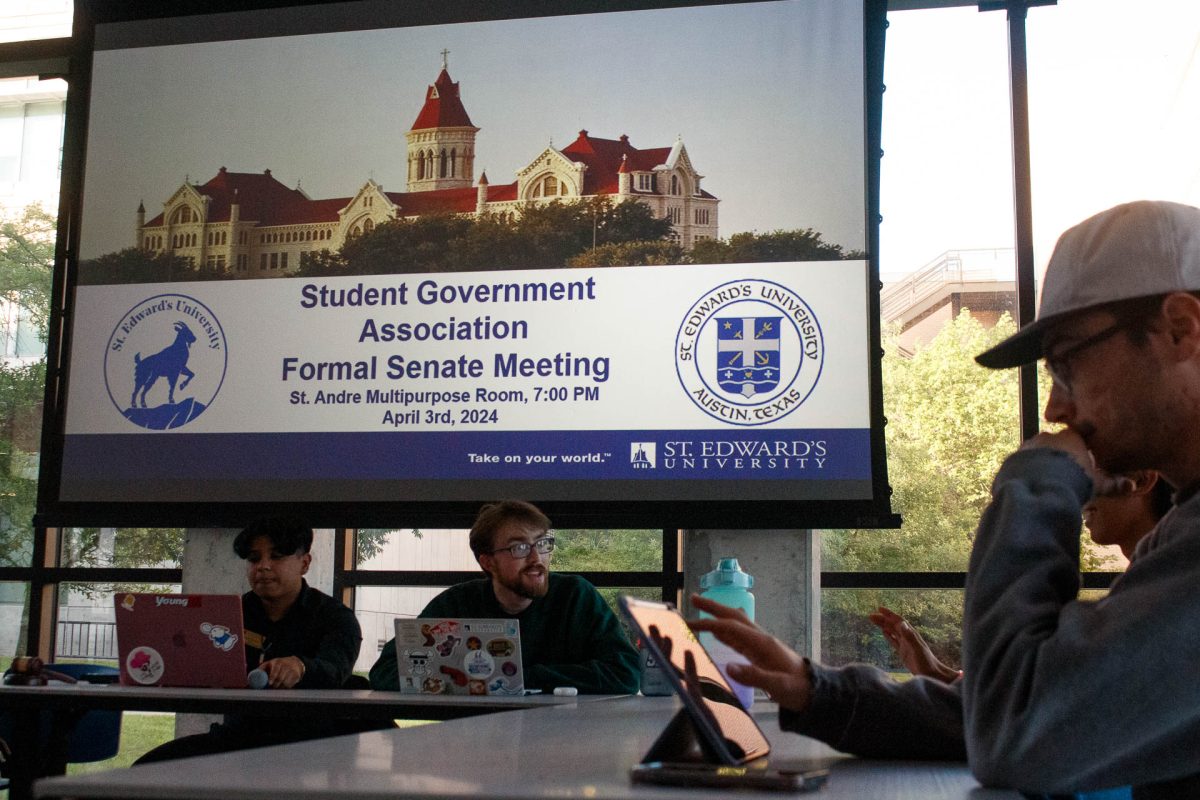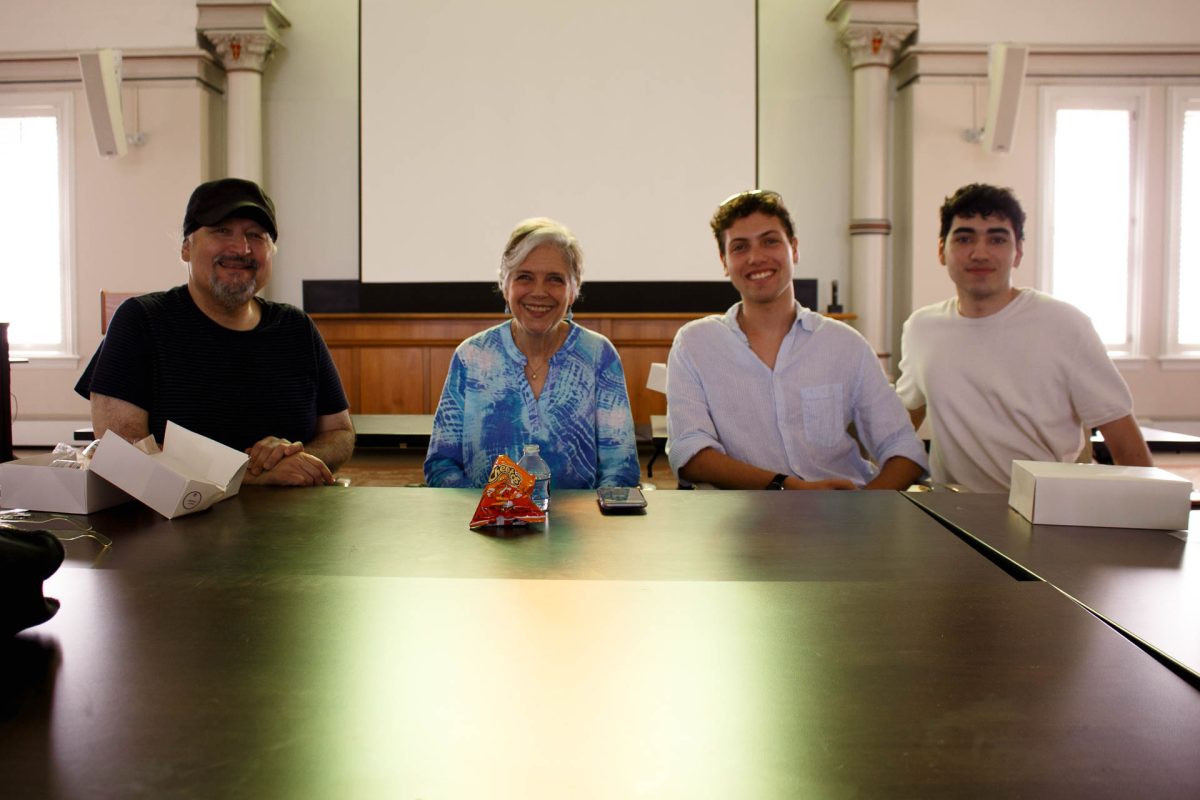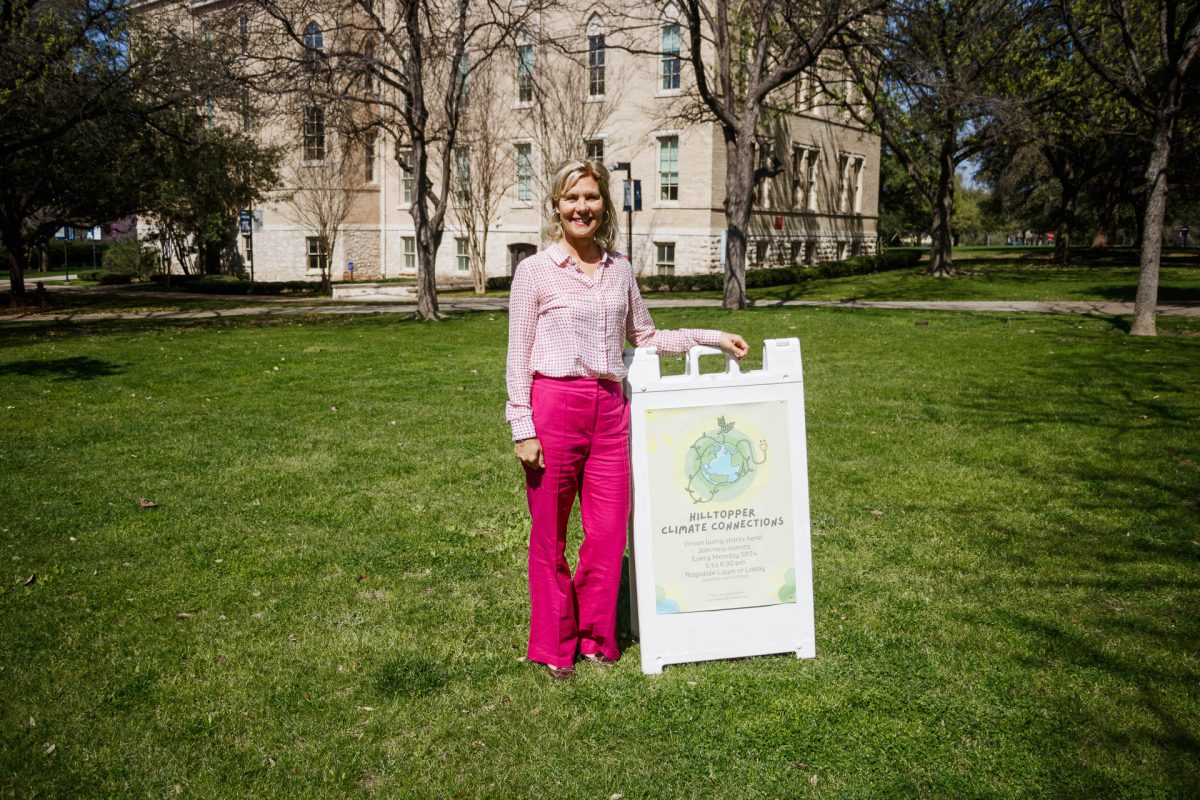The St. Edward’s College Assistance Migrant Program (CAMP) and Chicanx/Latinx studies collaborated to host a discussion named “Atrás de la Troca: A conversation with Dr. Saúl Sánchez,” on March 25 in Carter Auditorium. The event consisted of Sánchez describing the contents of his book, “Rows of Memory: Journey of a Migrant Sugar-Beet Worker,” and his experience of growing up as a generational migrant worker, following with an interactive Q&A. The talk served as a way to acknowledge National Farmworker Awareness Week, which is observed March 25-31.
National Farmworker Awareness Week serves as a week to honor the contributions of migrant farmworkers. CAMP Director Sonia Briseno expresses that the week is recognized and celebrated annually at St. Edward’s with different events and displays to celebrate students with migrant farm work backgrounds, and that the event with Sánchez was meant to serve as something that CAMP students would connect to.
“We definitely wanted to make sure that we involve our students in that conversation and definitely highlight his contributions to academia as a former migrant student,” Briseno said. “We want our students to see that someone who was a migrant student himself went on and did amazing things.”
To begin his discussion, Sánchez defines the phrase “Atrás de la Troca” as a metaphor for the adversity that migrant workers face. He makes the connection that from the view of a migrant worker, the phrase means having no control of where you are being taken, both physically and metaphorically, and how as a migrant farmer it can be difficult to go beyond and break that generational norm and expectation.
“In that context, it means that you, your parents, your siblings, you are all part of ‘Atrás de la Troca’,” Sánchez said. “You are sharing in the adversity.”
Throughout the talk, Sánchez talked about his own personal experience working as a migrant farmer. He talked about what the average day of harvesting fruit and produce as a young migrant worker consisted of, the importance of his family who worked alongside him and his decision to leave his routine as a migrant worker to pursue a college education. Sánchez explains he continues to share his book and his story to show his gratitude to his family and appreciation of his upbringing as a migrant worker.
“The appreciation that I have developed from my family roots is the greatest take away that I want others to learn,” Sánchez said. “I wanted to show the importance of my family to the migratory and agricultural topics of my book, and I want others to take that in.”
Briseno also mentions the fact that the event, as well as other events taking place during Farmworker Awareness Week, are also meant to educate those to be more aware of the hard work migrant workers do that may go unnoticed.
“I think it’s really important that we host these types of events, especially the ones where we remember and we celebrate our farm workers because we have food on our tables because of them,” Briseno said. “We know that they’re the ones that toil the fields every day, from early morning to sometimes late at night.”
Adjunct Chicanx/Latinx studies professor, Antonio Vásquez, Ph.D., explains that the contents of the discussion connects to the topics that were discussed throughout his classes this year. He also explains that through learning about the history of agricultural labor, he wants others to be aware of the history of exploitation and oppression that were and are being faced in the community to make progress towards migrants in agricultural labor.
”It’s important to understand the struggles of past generations, but we also should be mindful that systems of exploitation continue and that there continue to be challenges for agricultural labor in the United States,” Vásquez said. “My hope is that understanding part of this larger history will give us a greater foundation to commit ourselves to a better world for present and future generations.”
Vásquez said that he hopes to have more opportunities to collaborate with CAMP for similar events in the future because they help provide visibility for students of migratory agriculture backgrounds and highlight the point that many St. Edward’s students come from different backgrounds.
”The larger point for these events is to raise awareness that students come from diverse backgrounds and experiences, as seen with the CAMP program,” Vásquez said. “They all come together and contribute to the St. Edward’s community.”


